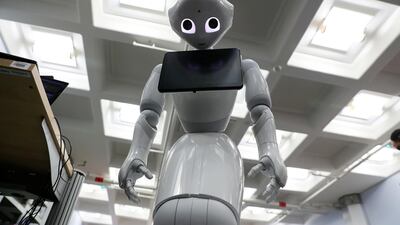Digital technologies could lead to a kick-start in productivity growth globally, in spite of a five-year lag in seeing tangible gains, according to a report by Moody's Investors Service.
The report, which comes amid low productivity levels in many countries, refers to big data, machine learning, AI, cloud computing, Internet of Things and advanced robotics.
"Digital technologies can lead to 'winner-take-all' economics, with small differences in quality potentially leading to substantial differences in earnings," said Elena Duggar, associate managing director at Moody's. "As a result, corporate credit implications will depend not only on company IT investment but also on how a company navigates the changes in industry structure and the transformation of consumer preferences."
Spending on digitisation is increasing, with the global spend on IoT alone expected to reach $745 billion (Dh2.73 trillion) in 2019, an increase of 15.4 per cent over the $646bn spent in 2018, according to the International Data Corporation. The study forecast spending in the sector to maintain at double-digit annual growth rates between 2017 and 2022 and surpass the trillion-dollar mark in 2022.
In the Middle East, Turkey and Africa segment surveyed by IDC, South Africa, is expected to spend $14.7bn alone on IT services – the biggest spender in the group, followed by Saudi Arabia ($11bn), Turkey ($8.3bn) and the UAE ($8bn).
Moody’s noted that advancing technologies could mitigate the impact of ageing on growth as well as transform the labour markets.
“Two forces will play against each other. On the one hand, increasing productivity will expand output and overall demand for labour, and will create new types of work. On the other hand, advancing technologies may act as substitutes to labour as repetitive tasks performed by both low and high-skilled workers will likely be automated,” the report said.

